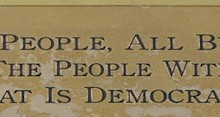What is the PIAB?
PIAB or the Personal Injuries Assessment Board, was created by statute in 2003. It was set up as an institution to assess the value of injured people’s claims in Ireland. Only medical negligence claims were removed from its scope. Approx. 92% of claimants make a claim through their solicitor, most for a pre-agreed fee.
The process of taking a personal injury claim through the PIAB Injuries Board can take some months. If it goes to court it will take longer than that. However, more than 80% of personal injury cases do not reach a court hearing, because they are settled first. This means the Defendant offers the injured person a certain amount of money to settle the case out of court, and they accept that amount of money.
How long does PIAB take?
The latest PIAB Annual Report shows that the average time for a PIAB injuries board claim to be processed is 7.3 months.
PIAB Injuries Board Claims
With some exceptions (such as injuries arising from medical negligence) personal injury cases don’t start in the courts. In Ireland injury claims* begin in the PIAB Injuries Board. This is a statutory body which assesses how much compensation is due to an injured party. It doesn’t make any decisions on questions of liability i.e., who is to blame for an injury.
Firstly, the injured person must submit their claim to PIAB. This should include a medical report and proof of any special damages. (Like out-of-pocket expenses, loss of income etc).
Then the PIAB Injuries Board contacts the respondent, who is the person the injured person says is to blame for their injury. They ask them if they are willing to allow the PIAB Injuries Board to make an assessment of value. If the respondent says yes, the assessment proceeds. When respondent says no, the PIAB Injuries Board immediately closes their file and issues the injured person with an Authorisation. (An Authorisation is needed to proceed to take a Personal Injuries case in court.)
If the respondent agrees, the PIAB Injuries Board will then make an assessment of the value of your claim. That assessment is sent to both sides. When both agree to it, the Injuries Board will issue an order to pay. If one or other side rejects the assessment the Injuries Board will close their file and issue the injured person an Authorisation.
Hiring a Solicitor for the PIAB Injuries Board
More than 90% of applicants to the PIAB Injuries Board hire a solicitor to help them with their personal injury case. Usually they want someone “on their side” to guide them through the complicated process of filing their claim. An experienced solicitor will also help them understand the full value of their assessement.
If you consult a solicitor she or he will need to know;
- All of the facts surrounding the accident, even ones you may think unimportant;
- The injuries you suffered as a result of the accident;
- All of the expenses you have incurred as a result of the accident.
For example, if you suffered an accident in the workplace, you will need to explain what you were doing at the time of the accident, who was in charge, and who witnessed the accident.
You will need to describe your injuries and any hospital or medical treatment you have received. Your solicitor will want to know about all injuries that you suffered, whether they were physical, psychological or emotional. They will then know what medical experts you need to prove your case.
PIAB: Submitting Evidence
Your solicitor will be able to take any action to secure evidence you will need for your case to be successful. Records, equipment, video footage are all relevant to prove your case.
You will also need to calculate your expenses arising from the accident. These include all medical costs (for example, doctors’ bills and medications) or home-help costs. There may also be a loss of earnings if you were unable to go back to work. You should also include related expenses, such as bus and taxi fares if you were unable to drive as a result of the accident.
Read our explanation of the different kinds of solicitors’ fees charged for PIAB Injuries Board claims* (which are typically a fixed fee), compared to litigation fees.
Personal Injury Claims * Timelines
An injured person has two years to make a claim from the date they knew or ought to have known of their injury. Once a claim has been accepted by PIAB, that two-year time limit clock is stopped. The average time from application to assessment in PIAB last year was 7 months. It is important for a claimant to recognise the risk of allowing that time limit to run out before a claim is made. They will lose any right to a claim they otherwise might have had. (This is called “going statute barred”)
PIAB Awards
The average assessment made by the PIAB last year was about €25,000. PIAB may assess your injuries at more or less, depending on a number of factors. They will consider the nature and severity of your injury and your long term prognosis. This does not mean that you are obliged to accept the Injuries Board assessment. You may accept it or, if you think it is too little, you may reject it and choose to go to court instead. Your solicitor will advise you of their assessment of the value a court would assign to your injury.
Settlement: High Court, Circuit Court, District Court
Most personal injury cases in Ireland do not reach the inside of a court because they are settled first. Approximately 80% of all claims never appear in front of a judge. Even when papers in a court case have issued a settlement can be reached before the trial begins.
Frequently a Defendant wishes to offer you money to end your claim. If a Plaintiff is agreeable to settling their case out of court your solicitor can arrange a settlement meeting.
At the meeting, your legal representatives negotiate for the best offer to be made. They will explain to you the advantages and disadvantages of accepting the offer made by the Defendant. Your lawyers will also give you advice about your chances of success at trial and the amount of damages you may receive in court.
If it is not possible to settle a case satisfactorily, you can always elect to proceed to trial.
Awards: High Court, Circuit Court, District Court
Your case may be heard in the District Court, the Circuit Court or the High Court. The choice of venue depends on the value of your case, i.e., how much you claim the Defendant should pay you.
If you have been injured in an accident, your solicitor will assess the value of your case by carefully considering all relevant factors. These include the nature and extent of your injuries and your prognosis for the future. Also considered will be the financial impact your injury has had on you and your family.
The District Court has power to award up to €15,000 in damages. Circuit Court judges have the power to award up to €60,000 in damages. The High Court has unlimited power to award damages and is the jurisdiction for all claims with a value over €60,000.
A Court Trial
If your personal injury case cannot be successfully settled, it will be scheduled for trial before a court. The format of your court case will depend on whether or not the Defendant admits to being at fault for your injuries.
If the Defendant in the case has not admitted to being at fault, the trial will take the following format:
- Your barrister or solicitor will outline to the judge the nature of the case and the injuries you suffered.
- You are called to the witness box to give evidence about how the accident occurred and your injuries. The Defendant’s barrister may cross-examine you.
- Medical evidence relating to your injuries may be given by a doctor, if appropriate.
- All the other witnesses on your side give evidence and are cross-examined by the Defendant’s barrister.
- All the Defendant’s witnesses give evidence and are cross-examined by your barrister.
When all the witnesses have been called, both barristers may make submissions to the judge. This may include summarising or emphasising certain evidence or making legal arguments.
The Judge’s Decision
The judge will then make his or her decision regarding:
- Whether the Defendant was at fault and (therefore liable to pay damages to you);
- The amount of damages to which you are entitled as a result of your injuries;
- Who should pay the costs of the proceedings. Usually, if you have won the case, the judge will order that the Defendant pay your legal costs as well as his/her own.
If the Defendant in the case has admitted to being at fault but you are unhappy with the amount offered as settlement, then the matter will be sent to a court for judgment solely on the amount of damages. This kind of case is referred to as being ‘for assessment only’.
In this situation, the court does not consider the question of who is to blame. The judge simply places a financial value on your case based on an examination of the nature and extent of your injuries and your prognosis for the future. This amount is set by the judge by considering the available medical reports and, if necessary, hearing evidence from medical practitioners relating to your injuries. You may also be called as a witness so that you can describe your injuries and the consequences of them you’ve experienced.
Award of Compensation
Just having been in an accident or to have suffered injury in order to qualify for compensation. It must be clear that the party or parties you have sued were to blame, at least partly, for the accident and the injuries you have suffered.
It may be the case that a number of people are partly to blame for an accident, including the person who has been injured. In these situations, called ‘joint liability’ and “contributory negligence,” the court might apportion or divide the blame between the different people involved.
For example, a factory worker might get injured both as a result of his own failure to operate machinery properly, and also his supervisor’s failure to inspect the machinery beforehand. In this situation, a court might decide the worker is 15% (for example) at fault for his injuries, and the supervisor 85% at fault. As a result, the court may only award the worker 85% of the compensation that his injuries are valued at.
How Injury claims are awarded
A claim for compensation will be divided into two parts:
General damages
This is compensation for the pain, suffering and inconvenience you have experienced, and will continue to experience, as a result of the accident.
The court will decide the amount of these damages by estimating the gravity of your injuries. It will do this by considering all the medical evidence before it, and by considering the pain you have already suffered and your prognosis for the future. i.e., how long and to what intensity you are likely to continue suffering.
Special damages
Special damages are compensation for the financial expenses you have incurred, and will incur in the future, as a result of the accident. For example, these damages would include the cost of repairing your car (if relevant), your medical expenses. They would also include your loss of earnings as a result of being unable to return to work, and all related expenses including travel, home-help, etc.
You may be asked to produce receipts and bills to prove you have incurred all of these expenses so it is important to keep a file of every bill and receipt.
Awards and Costs
The average assessment made by the PIAB last year was just under €25,000. The Injuries Board may assess your injuries at more or less, depending on a number of factors. These include the nature and severity of your injury and your long term prognosis. This does not mean that you are obliged to accept the Injuries Board assessment. You may accept it or, if you think it is too little, you may reject it and choose to go to court instead. Your solicitor will advise you as to the value a court would assign to your injury.
Some insurers may attempt to open direct discussions with you instead of going through the Injuries Board. These insurers represent their own best interests; they do not represent your best interest. Insurance claims handlers will manage hundreds of claims in a year. Typically, an injured person will have no experience in negotiating a settlement. This is an imbalance of experience which is tilted significantly against you.
When will you receive an award?
Usually awards as a result of civil cases in Ireland are paid by cheque by the Defendant to your solicitor within 6 to 8 weeks.





